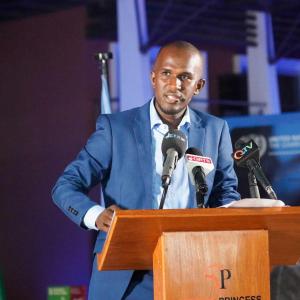FOR IMMEDIATE RELEASE
Banjul, 23 February 2024: The United Nations in The Gambia continues to take note of the calls to repeal the Women’s Amendment Act (2015) prohibiting Female Genital Mutilation (FGM) in The Gambia.
The United Nations in The Gambia expresses serious concerns over the introduction of a Private Member’s Bill, the Women’s (Amendment) Bill, 2024, that seeks to lift the ban on FGM.
The repeal of the 2015 Act, a vital legal instrument, would reverse gains made regarding the wholesome protection of the rights of women and girls, and would contravene The Gambia’s obligations under international human rights law and continental policy documents, including the Convention on the Rights of the Child (CRC), the Convention on the Elimination of All Forms of Discrimination against Women (CEDAW), the African Charter on the Rights and Welfare of the Child (ACRWC), the Protocol to the African Charter on Human and People’s Rights on the Rights of Women in Africa (Maputo Protocol) and Agenda 2063: The Africa We Want. Furthermore, UN Resolution 73/149 on intensifying global efforts for the elimination of FGM and Resolution on the elimination of FGM adopted by consensus at the 50th session of the UN Human Rights Council (July 8, 2022) urge States to adopt and enforce regional and national legislation prohibiting FGM.
Recalling the United Nations in The Gambia’s September 2023 statement on Protecting the Rights of Girls and Women from Female Genital Mutilation (FGM), 73 per cent of Gambian women and girls were subjected to FGM, 65 per cent of whom were under the age of five (according to the 2020 Gambia Demographic and Health Survey). Repealing the Women’s Amendment Act would exacerbate these figures, expose more girls and women to grave detrimental effects on their physical and psychological health and continue to violate their fundamental rights, including to bodily integrity, life, health, and protection against torture or other cruel and inhumane treatment. This repeal would also limit women and girls' capacity to participate fully in society or develop and reach their full potential within the Gambian society.
The Gambia’s National Conference on FGM, held 6 -7 February 2024 and involving Government, NGOs, CSOs, UN participants and survivors of FGM, reiterated that FGM is a harmful practice that is deeply rooted in the Gambian culture. Whilst the rights to culture and religion are guaranteed under national and international human rights law, the UN Declaration on the Elimination of Violence Against Women specifically condemns FGM as an act of violence against women stating that countries "should condemn violence against women and should not invoke any custom, tradition, or religious consideration to avoid their obligations with respect to its elimination”. The UNESCO Universal Declaration on Cultural Diversity and General Comment 21 of the Committee on Economic, Social and Cultural Rights (ESCR) echo the same.
On this year’s International Day of Zero Tolerance for Female Genital Mutilation (6 February 2024), United Nations Secretary-General António Guterres reminded that FGM is an egregious violation of fundamental human rights that causes lifelong harm to the physical and mental health of women and girls and called upon all Member States to “…redouble our efforts and investments to uphold the rights of women and girls, and put a decisive end to female genital mutilation once and for all”. We acknowledge efforts made by the Government, CSOs, religious leaders, and communities to combat FGM in The Gambia and advance the fundamental rights of women and girls.
We call for continued allocation of appropriate budgets and human resources and implementation, monitoring and effective enforcement measures on the law prohibiting FGM. Legal measures must be accompanied by awareness-raising campaigns to change societal norms, practices and attitudes towards FGM.
We continue to urge national authorities, lawmakers, young people, civil society organizations, and traditional and religious leaders to come together with a unified purpose to foster a society that prioritises the health, well-being and dignity of all girls and women in The Gambia.
The United Nations in The Gambia reaffirms its strong commitment towards supporting The Gambia’s efforts in upholding and protecting the rights and dignity of all its citizens, including women and girls.
###
For media enquiries, please contact:
Mr. Abdoulie Badjie,
Development Coordination Officer, Programme Communications and Advocacy
abdoulie.badjie@un.org






